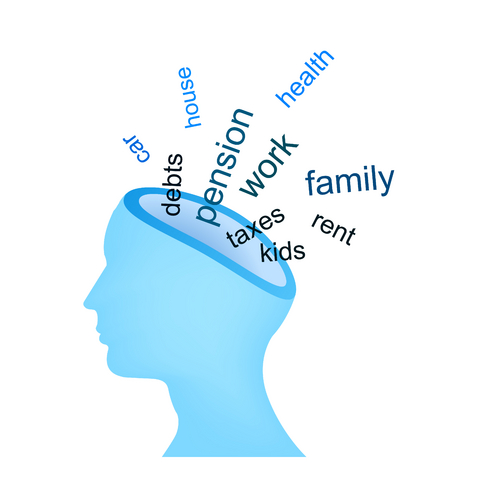Compassion Fatigue?
Are you a nurse? Are you compassionate? Do you feel fatigued? Could it be…compassion fatigue? (Is there really such a condition?)
There’s a lot of talk in nursing, in healthcare and in the literature about “compassion fatigue.” When I searched Google® for the keywords “compassion fatigue in nurses ” I came up with 168,000 links…168,000! Seriously?!
You’d think that we’re all suffering from this syndrome, which can’t be possible…or, is it?!
When I question whether there’s “such a condition” as compassion fatigue, please don’t get me wrong; I’m not negating the fatigue and exhaustion that nurses can experience while providing care for those in need.
I’ve been in the position where I’d just cared for my umpteenth patient, walked out the door, and said, “Why the hell am I still here…how can I go on?!”
But, the notion that compassion can cause fatigue gives me cause to pause. How about you?
Can Being Compassionate Lead to Fatigue?
Can compassion really lead to fatigue? Or, is it a matter of not caring for ourselves, or working within systems that don’t support us in our efforts to care compassionately?
I believe that within each of us there is a wellspring of compassion. And I believe that when we’re given the time and means to care for those who need us, and can do so from the heart, we tap into this wellspring and feel enlivened (not fatigued) by doing so. But…
Recently I think that I’ve (unintentionally) stepped on a few toes of people who feel that I’ve “negated” their experience. One person even said so, stating that I had “negated the exhaustion” the she felt.
It’s not my intention to negate or deny that as nurses, we’re tired as heck from doing the work that we do and feeling exhausted after doing so. It’s just that the pairing of the words “compassion” and “fatigue” don’t quite fit into my world view.
Albert Einstein wrote:
A human being is a part of the whole called by us “Universe,” a part limited in time and space. He experiences himself, his thoughts, his feelings, as something separate from the rest—a kind of optical delusion of his consciousness. The delusion is a kind of prison for us, restricting us to our personal desires and to affection for a few persons nearest to us. Our task must be to free ourselves from this prison by widening our circle of compassion to embrace all living creatures and the whole of nature in its beauty. Nobody’s able to achieve this completely, but striving for such achievement is in itself a part of the liberation and a foundation for inner security.1
Or is it a Case of Nurse Burnout?
When we discuss how exhausted so many nurses feel, there are a number of questions that we can ask ourselves before we incriminate compassion as the culprit. Here are a few questions:
- Why do we burnout?
- What are direct and measurable causes of fatigue and burnout, e.g., higher acuity staffing, increased turnover in nursing ranks, decreased resources for providing care, etc?
- Why do we experience fatigue when we’re caring for others?
- Is there something that we’re not doing, like self-care, that could actually support us in our work and life?
- And what about our employers? Are they doing everything in their power to make sure that we’re supported and given the time (and resources) to conscientiously and compassionately care for our patients?
In posing these questions, I’m suggesting that we attempt to shed light on the obvious facts of why nurses are burning out, and even dropping out of nursing. In fact, many of the factors affecting nurse burnout offer alternative reasons than a simple answer like, “compassion fatigue.” And, in fact…
Evidence that Compassion Helps Us
There’s actually plenty of evidence showing that generosity, compassion, and kindness are good for your health. And research into practitioners who use compassion meditation techniques has shown that we can actually modify the neural (brain) pathways that control our emotions – please see post from Meditation Increases Our Ability to Be Compassionate.
So, how do we get from caring compassionately and maintaining self-care to preventing burnout…or at least what’s known as “compassion fatigue?”
For those inclined to lists, here’s an easy-to-remember list of things that we can do to remember to keep our heart in our work, while keeping our mind in ease.
A Simple List of Things that We Can Do to Maintain a Compassionate Presence at the Bedside:
- Remember to give ourselves the same love (or care) that we give to our patients. Don’t we deserve it? Where have we gone wrong where we equate selfishness with a genuine love and compassion for ourselves? Why do we believe that caring for ourselves is less important than caring for our patients?
- Recognize others (those who we care for) as wanting the same things that we want, happiness and freedom from suffering. This can be like seeing others as “another me.” We’re not terribly different from those we care for.
- We need to remember that whatever we’re feeling at the moment is impermanent. Since everything that we experience and feel is impermanent, if we can remain present in the moment while we’re attending to another, without letting the thoughts and feelings of the moment distract us, we can mind the bedside more easily.
- We need to remember our connection with others. Like Einstein’s quote, “[we] experience… [ourselves], [our] thoughts, [our] feelings, as something separate from the rest—a kind of optical delusion of [our] consciousness. The delusion is a kind of prison for us, restricting us to our personal desires and to affection for a few persons nearest to us.”
- Finally, and I stumble on this one constantly, is forgiveness for ourselves each time that we find ourselves standing knee-deep in mindlessness. Each time that we remember that we’ve forgotten to be present is an invitation to return to our mind and to our intention to care.
So, what do we remember to maintain our compassion without burning out?
- Love
- Happiness
- Impermanence
- Connection, and
- Forgiveness
….all for ourselves!
There’s a practice, you could call a “meditative” practice, called loving kindness that helps us to work with these points. Please feel free to download this Loving Kindness Practice and use it as a support. You can even carry it in your pocket and read from it during your breaks at work, or at home. And, let me know if you need something else to work with; I know that I’m constantly using different tools at different times to support my inescapably distracted mind!
Meditation Fosters Compassion
As we become more aware of and engaged in the present, we find within ourselves compassion not only for ourselves but also for others. And, through meditation, we can see how fleeting our suffering is and also see that our potential for joy is greater than that for suffering. Meditation can bring us to that state of joy.
While all of this may sound daunting to you, especially if you’re faced with holiday sadness, all that you need to do is to begin, where you are, here and now and practice mediating on the feeling of joy, for yourself and for others. In fact, you can even allow the sadness to remain, don’t try to make it go away.
Have as much compassion for your sadness as you would for the sadness of another. But, remember to see the sadness as temporary; don’t hold too tightly to the belief that it’s permanent. That’s the magic of meditation, realizing that all thoughts, emotions and sensations are really and truly impermanent!
HERE’S THE PRACTICE FOR MEDITATING ON JOY – HOW TO MEDITATE ON JOY, FOR YOURSELF AND FOR OTHERS. Enjoy!
Meditation Resources
Here are a few items that can help you to meditate whether you’re a beginner or already have a practice. All of these resources are aimed at helping you in your meditation practice and to do so with less effort and more success. Please let me know what else you need, that’s what I’m here for.
MEDITATION POSTS:
- What is Meditation? Sometimes It’s About Failure
- How to Meditate: Distraction in Meditation Doesn’t Matter
- Meditation Tip of the Week: Stop Meditating
- Meditation Tip of the Week: Meditate…Even When it Doesn’t Work
- How to Meditate: The Most Important Practice…Plus One Great Tip
MEDITATION AUDIO DOWNLOADS:
- Riding the Breath With the Mind
- Beginning With Your Thoughts
- Working With Our Thoughts (more advanced)
This site has tons of tools for learning how to meditate and be compassionate.
I encourage you to look through the HUNDREDS of articles that I’ve written and especially check out my weekly meditation tips and other useful meditation materials provided for your health and well being. Please let me know if you’d like to discuss anything with me, have any questions or need clarification regarding anything that I’ve written about.
[i] Letter of 1950, as quoted in the New York Times (29 March 1972) and the New York Post (28 November 1972). However, The New Quotable Einstein by Alice Calaprice (Princeton University Press, 2005: ISBN 0691120749), p. 206, has a different and presumably more accurate version of this letter, which she dates to February 12, 1950, and describes as “a letter to a distraught father who had lost his young son and had asked Einstein for some comforting words.” A human being is a part of the whole, called by us “Universe,” a part limited in time and space. He experiences himself, his thoughts and feelings as something separate from the rest—a kind of optical delusion of his consciousness. The striving to free oneself from this delusion is the one issue of true religion. Not to nourish it but to try to overcome it is the way to reach the attainable measure of piece of mind.






Very thorough coverage of an important subject in nursing. Sharing!
Hello Elizabeth – Great to “see” you here on my site. Thanks so much for your comment; indeed, a very important subject and one that we really need to address, personally and professionally, in an ongoing manner. What are your thoughts about “compassion fatigue” versus “burnout?” I’ve received a number of comments from people on the subject and want to keep the discussion going. Take care and thanks again for “dropping in.” – Jerome
Good article I do not ever remember hearing the term compassion fatigue.
Hi Norma – Glad that you like the article. Indeed, there are – literally – thousands of references to “compassion fatigue, ” books about it, speakers who discuss the topic, you name it. And it’s not like nurses don’t experience fatigue…or exhaustion! due to our work and the stress around it. My premise is just that compassion is indefatigable, at least as I’ve experienced it. Thanks for the comment, I look forward to hearing from you again. Take care, Jerome
[…] jobs are not only physically demanding, but also emotionally taxing, with stress going so far as to affect their empathy for patients. Friends and family can also sometimes bare the brunt of someone’s stressful workday, especially […]